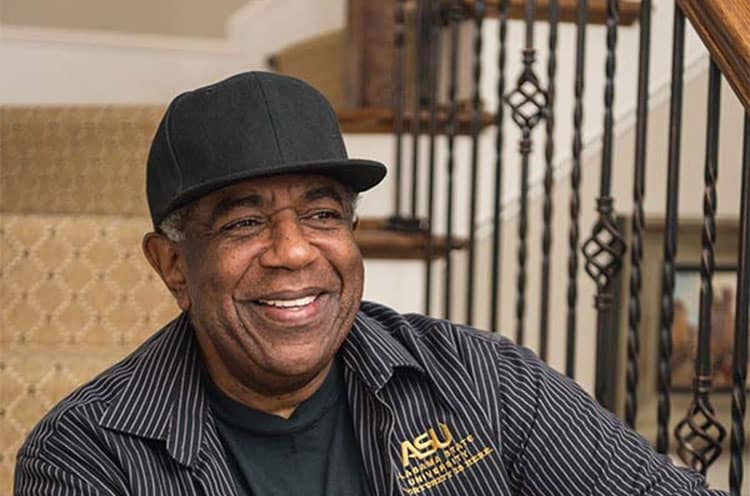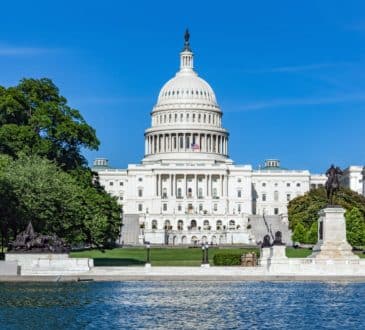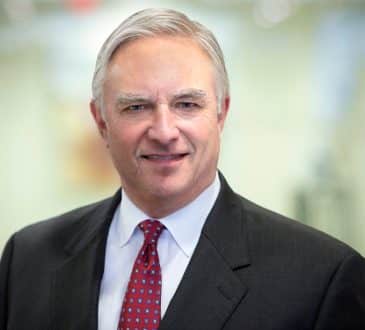Growing Up in the Segregated South Was Instructive for Becoming Comfortable in Uncomfortable Settings

The things that happen to us in life are often not so much about what’s taking place in the moment, but about placing us on a path to lead the way for others.
It would be years before I realized the truth of that.
I was born in 1954. That year, the Supreme Court voted 9–0 to reject the “separate but equal” educational system. Brown v. Board of Education turned public education on its head from Texas to Delaware, from Missouri to Florida.
Still, for African Americans, life in the South remained ugly and raw. Even though Brown v. Board of Education had outlawed public school desegregation, Alabama lawmakers and law enforcers seemed to view the U.S. Supreme Court’s decision as merely a recommendation, not a requirement. In fact, it took a series of federal district court rulings in Alabama, starting with Lee v. Macon County Board of Education in 1963, to really start unraveling Alabama’s segregated school system.
Solomon Seay, an African American attorney, led the fight in our community. He and his law partner Fred Gray had successfully litigated the Lee case, and he felt strongly that blacks should take advantage of these new freedoms to attend the “white schools.” Although it might seem strange to a reader today, virtually all of the people I knew were content to stay in all-black schools, even if it meant continuing to accept segregation. And besides, we knew what trying to integrate could mean in Alabama.
In Tuscaloosa, Autherine Lucy had tried to become the first black student to enroll at the University of Alabama back in 1956. Threatened with mobs who pelted her with rotten eggs and hurled vile profanity at her, she only lasted through three days of classes. The next year, in 1957, when civil rights leader Rev. Fred Shuttlesworth had the temerity to try to enter two of his daughters at Birmingham’s all-white Phillips High School, angry white hoodlums beat him nearly senseless.
In 1963, when African American students again tried to register at the University of Alabama, they were confronted with the spectacle of Governor George Wallace “standing in the school house door” to try, unsuccessfully, to block their admission. But in Birmingham a few short months later, the Ku Klux Klan seemingly retaliated to this and other defeats by bombing the Sixteenth Street Baptist Church, killing four little girls who had done nothing other than to attend Sunday School.
But Attorney Seay claimed that inside the walls of those “white schools” were better classrooms, better books, and better resources. If we were going to create leaders in our community, he argued, we needed to position our people to take advantage of everything that was available.
Seay went around knocking on people’s doors and canvassing the community for participants in an integration program. After much cajoling, Seay persuaded the parents of six children to enroll in the all-white Goodwyn Junior High School. By some strange luck — or curse as I thought at the time — I was one of them.
If I could go back and talk to my 12-year-old self, I would say, “This experience is not about you. I know you are young. I know you are afraid. But if you conquer this, the ripple effects will touch your children, your children’s children, and Southern communities beyond imagination.”
Every day, from the moment we got off the bus in the morning until we were back on in the afternoon, we were often belittled, dismissed, humiliated, and sometimes pinched, pushed, and shoved. To say those were challenging times would be the epitome of an understatement.
Unsurprisingly, I began to hate school and everything and everyone associated with it. My mother had sent me to Goodwyn to learn, but instead of getting a lesson in math, science, or reading, I was getting schooled in my worthlessness and inferiority.
The next year, having barely survived Goodwyn, I found myself at an essentially all-white high school — ironically named after Confederate General Robert E. Lee. There were some signs of progress. Each year, Attorney Seay had continued to recruit more and more blacks to integrate Montgomery schools. And as more of us entered the previously all-white public schools, sports and other activities began to iron out some of the great divide between the races. As we became more accustomed to each other, circumstances began to get a little better.
I was determined to complete this journey — if not for me, then at least for my mother. And, whether I knew it or not, I’d learned valuable lessons. Goodwyn and Lee prepared me for a life I had no idea I would lead. Being in those all-white settings gave me a foundation for the life I’m leading today: being the first and only African American in a number of boardrooms and sitting at a number of exclusive tables to make important decisions while looking around at faces that don’t look like mine. I learned to be comfortable in uncomfortable settings.
To those forging paths into new, uncomfortable frontiers, I say to you:
- The more you can take, the more you can have.Keep your eyes on the prize as the rewards of life are reserved for those who stay in the game.
- The world rewards those who dare to be all that they can be.Encountering humiliation and intimidation makes many people throw in the towel. Make self-confidence and your work ethic a shield that protects you.
- Find a way to love and appreciate those who wish to do you harm. They are the ones who will make you strong. You will come to credit them for much of your courage, your strength, and your resilience.
Written by Larry Thornton.
Have you read?
Best Fashion Schools In The World.
Best Business Schools In The World.
World’s Most Influential and Innovative Companies.
Best CEOs And Business Executives In The World.
World’s Best Hospitality And Hotel Management Schools.
Add CEOWORLD magazine to your Google News feed.
Follow CEOWORLD magazine headlines on: Google News, LinkedIn, Twitter, and Facebook.
This report/news/ranking/statistics has been prepared only for general guidance on matters of interest and does not constitute professional advice. You should not act upon the information contained in this publication without obtaining specific professional advice. No representation or warranty (express or implied) is given as to the accuracy or completeness of the information contained in this publication, and, to the extent permitted by law, CEOWORLD magazine does not accept or assume any liability, responsibility or duty of care for any consequences of you or anyone else acting, or refraining to act, in reliance on the information contained in this publication or for any decision based on it.
Copyright 2024 The CEOWORLD magazine. All rights reserved. This material (and any extract from it) must not be copied, redistributed or placed on any website, without CEOWORLD magazine' prior written consent. For media queries, please contact: info@ceoworld.biz
SUBSCRIBE NEWSLETTER








